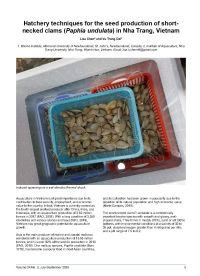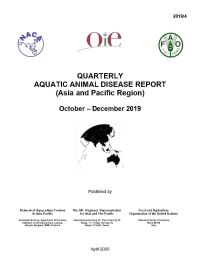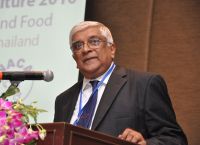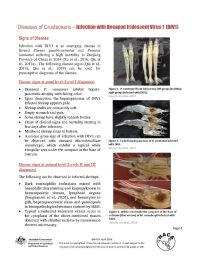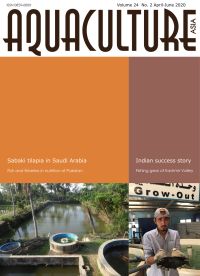Aquaculture of short-necked clam Paphia undulata in Vietnam started approximately ten years ago, but production has been very small due to the lack of seed supply from hatcheries. The Institute of Aquaculture at Nha Trang University, is the first to conduct artificial seed production research on P. undulata and the first hatchery in Khanh Hoa province to produce seed of this species. This article describes techniques to induce spawning in P. undulata using wet and dry thermal shock stimuli. It also describes broodstock preparation, larval rearing, transportation techniques and the market value of this species.
It was with great sadness that we learned that our dear friend Professor Sena De Silva passed away on 6 May, 2020. On behalf of the Governing Council, the Chair Dr Yingjie Liu, and the NACA Secretariat, would like to express our sincere condolences to his family. The aquaculture community, and the region, has lost one of its true champions. We, the staff of the NACA Secretariat, will miss Sena. He was not just a colleague, teacher and mentor, he was also our friend.
Infection with DIV1 is an emerging disease in farmed Cherax quadricarinatus and Penaeus vannamei suffering a high mortality. This disease card provides information on signs of disease at pond and animal level (levels I - III diagnoses), the disease agent, known host range and distribution in the Asia-Pacific region, molecular diagnostic methods and provides key expert contact points.
In this issue:
Potential new species in the Kingdom of Saudi Arabia: Sabaki tilapia (Oreochromis spilurus); Role of fish & fisheries in national nutrition of Pakistan; Success story of first fish farmer in India to be awarded ‘Padma Shri’; Insights into the fishing gear and ichthyofauna of major lentic water bodies of Kashmir Valley; NACA Newsletter.
